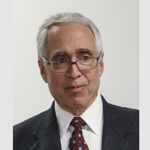A President's Just Due
![]()
cting with little public notice last month, a House subcommittee decided to give the President of the United States a $200,000 pay increase to $400,000 a year. The increase comes after a 30-year freeze.
Caught red-faced after Washington Post writer Stephen Barr found the increase buried in the very last line of the $13.6 billion Treasury, Postal Service and White House appropriations bill, House leaders quickly offered the standard laundry list of reasons for the increase. One staffer even noted that the president of Switzerland is paid more than the U.S. President.
There is no doubt that the President deserves more. President Clinton's current salary would put him at No. 785 on the list of the nation's 800 highest-paid corporate chief executive officers-well below Walt Disney's Michael Eisner, who receives a package worth $589 million, but far ahead of Steve Jobs, who is making exactly $0 but stands to become a small country if Apple starts making money. Even adding in the value of the White House lodgings, Air Force One, 24-hour security and food, the President's total compensation is an embarrassment. Had Congress indexed the 1969 increase to inflation, the President's salary would already be at $915,000 or so. Even at that level, the President would rise only to No. 673 on the list.
Nevertheless, a $400,000 annual salary would put the President far ahead of almost every other top job in America. Three-quarters of the nation's nonprofit executives make less than $135,000, high school principals make an average of $72,400, county managers $86,700, medical school deans $201,200 and funeral directors $21,775.The higher the President's salary goes, the further it moves away from the experience of ordinary America.
However, ordinary America is not as sharply opposed to an increase as one might guess. Forty-five percent of those interviewed in May by the Pew Research Center for The People & The Press said the President should get a raise. Most of them simply felt the President deserved more. But the numbers vary greatly depending on whether respondents know what the President now makes. When half the Pew respondents were told that the President's salary has not gone up since 1969, but not that the current salary is $200,000, 55 percent said the President should get the bump. When the other half was only told the current pay level, the number who endorsed a salary increase fell to just 39 percent.
Those numbers are quite high, given the recent decline in trust in government. Americans seem to recognize that being President is one tough job and that the occupant suffers enough. Asked a few years ago whether they would rather be President or spend four years in jail, the majority of Americans picked jail.
Not that the amount of compensation makes any difference in who runs for the office. Power, not money, is the driver. Eisner may be at the top of the money pile, but he is still the CEO of an organization built around a mouse and a duck, where a tough decision is where to put the new roller coaster at Disney World, and where a life-and-death decision is whether to kill the next movie production.
The proposed pay increase comes as the House leadership continues to deny action on campaign finance reform. If the House truly wants to boost presidential prestige, it might tie a presidential salary increase to a complete ban on the unregulated soft money that is doing so much to weaken public confidence in the democratic process. The president of Switzerland not only makes more money than the U.S. President, but he also does not have to go tin cup in hand to Eisner to raise soft money for his political party, nor does he feel obliged to rent out the presidential mansion to fat cats. (Memo to Congress: The average salary of hotel managers ranged from $39,000 to $81,000 in 1996.)
The increase also comes as the House considers a long list of civil service proposals, not the least of which is the tattered outline of the administration's long-delayed civil service reform. It is tempting to recommend that the President's salary increase be included in the same pay-for-performance system being designed by the Vice President. How much of the $200,000 should be tied to the same customer satisfaction measures that will affect front-line bonuses? How much to agency implementation of the Government Performance and Results Act? To some reasonable measure of shareholder value?
A more reasonable pro quo for the quid would be a faster, slimmer presidential appointment process. There are simply too many positions to be filled, too many forms to be filed and too many delays to surmount. The easiest way to fix the system is to cut the number of senior positions, starting with a long-overdue reduction in Schedule C personal and confidential assistants. The White House continues to argue that every last one of the 3,000 top jobs is essential to the President's leadership, even as it defends a 25 percent vacancy rate as no real threat to government performance.
Addressing soft money while fixing the presidential appointments process would give the next President a chance to earn his or her keep and retain his or her honor. Then a presidential pay increase would get a ringing endorsement.
Paul C. Light is Douglas Dillon senior fellow at the Brookings Institution's Center for the Public Service. Contact him at plight@govexec.com.
NEXT STORY: Don't be a target







